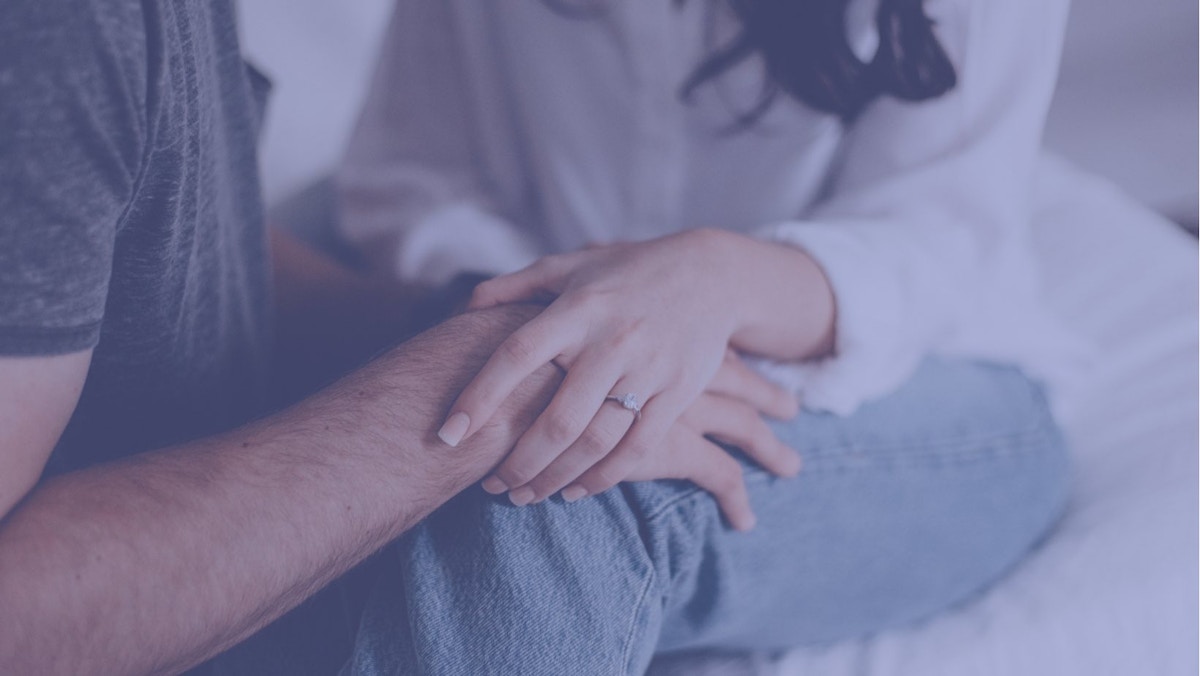I Am Sober is a free app that helps you get some control back in your life.

How Do I Know If I Have an Eating Disorder?
Last Updated: Tue, January 23, 2024Eating disorders are something that many of us associate with a certain appearance or set of symptoms, but there are many different eating disorders you might not be aware of. Today we’re going to discover some of the key signs that you might have an eating disorder. It’s never too late to seek help for an eating disorder, and we encourage you to find professional help if you believe you are struggling with one currently.
You Worry About Your Weight All The Time
Do you find yourself constantly weighing yourself? If so, this is one of the key indicators of an eating disorder. Even if you don’t find your weight going down, you may still find yourself struggling with body dysmorphia or restricted eating. Many people find themselves judging their body on a daily basis, considering what they wish they could change about themselves. This is a clear indication that your body image is taking over your mind. By working through these issues, you’ll be able to regain your sense of self and have a more healthy relationship with your body.
Eating Too Little
Eating too little is most commonly associated with anorexia nervosa, which is the most commonly known eating disorder. This is more common within women than men and often develops during their teenage years. People with this eating disorder will often think they are too heavy or fat, and therefore restrict the type of food they eat. This results in them becoming underweight for their height and developing a fear of gaining weight. Anorexia needs treatment as soon as possible to avoid further damage to the body. In the long run, it can do severe damage to your internal organs and cause your body to shut down.
Exercising More Than Usual
On top of restricting your meals, an obsession with exercise is a key indicator of an eating disorder. While you might just be training for an upcoming event, when you are exercising purely to burn calories, this is another sign of anorexia. It often stems from an intense fear of gaining weight and a sense of denial that you are currently underweight. Anorexia is closely linked to obsessive-compulsive disorder, and you may find yourself constantly preoccupied with thoughts of working out. If you are suddenly much more interested in learning about training and burning calories, this is a clear sign that your relationship with fitness and food isn’t as it should be.
You Avoid Socializing
While this might seem like an unusual eating disorder symptom to some people, it’s a clear indication of a hidden condition. If you think food or drink are involved in socializing, it’s obvious that you might not feel comfortable in this situation. A lot of people suffering from an eating disorder often feel uncomfortable eating in front of other people due to a fear of being judged. They might have very strict eating patterns or times, which can’t always be followed.
For anyone struggling with bulimia nervosa, this is another eating disorder that may make you withdraw from your friends and family. This eating disorder centers around eating too much before purging the meal you’ve just consumed. Of course, this may be uncomfortable to do around others, which is why you are likely to withdraw from your social life. When you are struggling with an eating disorder, one of the worst things you can do is cut out your friends and family. You need their support during this challenging time, and they’ll be there to help you on your journey. We highly recommend opening up to someone you trust as soon as possible if you think you are struggling with any of the symptoms listed here today.
A Change in Your Mood
Food has a huge impact on our overall mood, and if you notice you are struggling with anxiety or depression, this may be linked to an eating disorder. Of course, these mental health conditions can exist separately from eating disorders, but individuals with these often find themselves restricting what they eat. When you are constantly hungry or preoccupied about what you will eat next, this can have a huge impact on your everyday life. You might notice your mood drops significantly and that you don’t want to do any of the activities that previously brought you joy. Obsessive-compulsive disorder is also another condition that we notice in people with eating disorders. If you find yourself washing your hands more or doing repetitive activities, we recommend you reach out for help about this as well.
Stricter Daily Routines
Eating disorders are closely linked with a need for control, and you’ll find that your daily routines will change if you are struggling with any type of eating disorder. Many people find they start planning their meals in advance or eat at a certain time of day, which can disrupt their previous routine and way of living. You might find yourself withdrawing from your everyday life or work, which can cause issues with your relationships and career in the future. No matter what stage of your life you are in, it’s easy for an eating disorder to take over and stop you from living life to the full.
If any of these symptoms apply to you, we encourage you to reach out for help as soon as possible. It’s never too late to start treatment for an eating disorder, and the sooner you regain control over your eating patterns, the more you will enjoy your life once again. Eating disorders come in various forms, and there’s no specific body size that’s associated with someone with an eating disorder. This is what makes them so easy to hide from family and friends, but it could be doing so much damage to your body in the long run. When you open up to someone about how you are feeling, you’ll be able to get the support you need to start living your life and enjoying yourself once again.
I Am Sober is a free app that helps you get some control back in your life.




